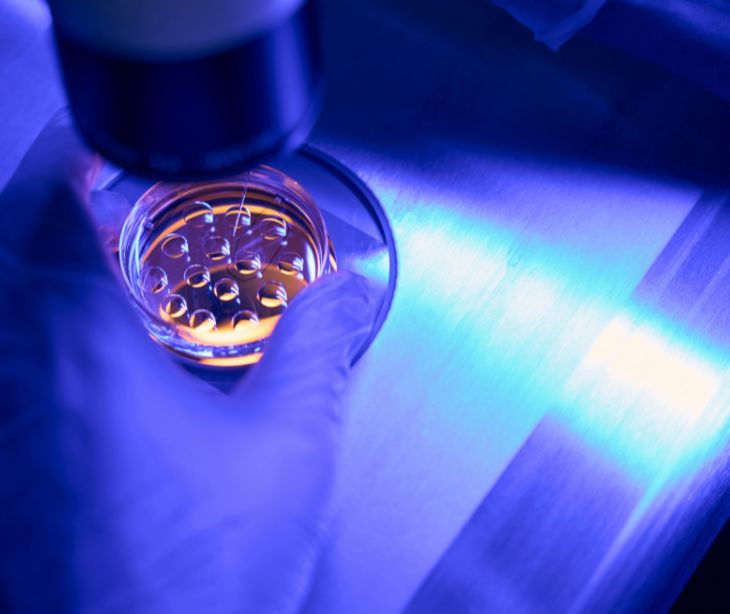
With advances in genetic testing and the rise of over-the-counter ancestry tracing services, long-standing expectations of anonymity are being challenged, leading to a rethinking of donor and sperm bank responsibilities. For instance, a study titled, A shifting ethical and legal landscape for sperm donation, notes that new laws and court decisions in various jurisdictions, including the United Kingdom and some US states, are granting individuals conceived through sperm donation the right to know their donor's identity under certain conditions. This is balanced with the need to maintain some donor's desire for privacy and complete exclusion beyond the donation process.
The foundational data privacy regulations
HIPAA
HIPAA applies to the handling, storage, and sharing of protected health information (PHI) within sperm banks. The PHI protected includes:
- Donor identification information
- Health and medical records
- Donation records
- Lab test results
- Treatment information
- Payment and billing information
Specific sections of HIPAA that apply include:
The Privacy Rule requires sperm banks to implement safeguards to protect the privacy of PHI and sets limits and conditions on the uses and disclosures that can be made without patient consent. It also grants individuals the right to obtain a copy of their health records and request corrections.
The Security Rule specifically requires sperm banks to secure electronic PHI (ePHI) appropriately against potential risks to confidentiality, integrity, and availability. This rule is broken down into the implementation of physical, technical, and administrative safeguards, such as access controls, audit controls, and secure communication methods such as HIPAA compliant email.
The Breach Notification Rule requires the provision of a notification to affected individuals, the Secretary of Health and Human Services, and, in certain circumstances, to the media, in the event of a breach of unsecured PHI. This rule outlines the content, timing, and methods of breach notifications.
See also: HIPAA stands for . . .
FDA guidelines
The FDA guidelines actively regulate the standards for donor screening and testing to ensure the safety of donated sperm used in assisted reproductive technologies. These guidelines mandate that sperm banks conduct thorough medical histories and physical examinations of potential donors to screen for risk factors associated with infectious diseases, such as HIV, hepatitis B and C, and syphilis. Additionally, the FDA requires sperm banks to test donor specimens for these infectious agents and others, as part of their commitment to protect recipients from potential health risks.
GINA
GINA's provisions complement the privacy protections established by HIPAA. By making it illegal for health insurers and employers to request, require, or use genetic information for decisions regarding coverage, rates, or employment, GINA ensures that the genetic information collected by sperm banks during the donor screening process is shielded from discriminatory practices. This protection extends to the donors themselves, who can provide their genetic material without fear that their genetic information might be used against them in unrelated contexts, such as obtaining health insurance or employment.
An overview of state laws
State-specific privacy laws are increasingly necessary, especially for businesses like sperm banks that handle personal and sensitive information. These laws vary from one state to another, setting rules on how businesses can collect, use, and protect people's data.
Under the CCPA, sperm banks in California must allow residents to access, delete, or prevent the sale of their personal information, which could include anything from donor profiles to recipient data. Moving to New York, the SHIELD Act compels sperm banks to adopt robust security measures to safeguard the private information of New Yorkers. This includes implementing procedures to prevent data breaches and notifying individuals if their data is compromised. Meanwhile, in Illinois, BIPA regulates collecting and storing biometric data, which sperm banks might collect for identification or security purposes.
A ruling by the Illinois Supreme Court clarified that healthcare workers, including those potentially in sperm banks, are exempt from BIPA’s requirements if the biometric data collection is HIPAA compliant. This exemption, highlighted in the case where two nurses sued Ingalls Memorial Hospital over its fingerprint-enabled medication storage, illustrates the nuanced interplay between state laws like BIPA and federal regulations under HIPAA. This case underscored that HIPAA’s broad protections for healthcare-related information take precedence over state laws.
The challenge comes when sperm banks operate in multiple states, each with its own set of privacy laws. It can get complicated trying to keep up with all the different rules and making sure they're followed properly. Sperm banks might need to upgrade their systems for managing data, train their staff on these laws, and continuously update their practices as new laws come into play.
Sperm bank data that is protected
- Donor identification information: Names, addresses, social security numbers, and other identifiers.
- Health and medical records: Medical history, test results, and information on physical health.
- Genetic information: Data from genetic tests, family medical histories, and information about genetic diseases or disorders.
- Donation records: Dates and outcomes of donations, including quantity and quality of sperm.
- Recipient information: Details about the individuals or couples receiving the donation.
- Payment and billing information: Includes any information related to financial transactions, insurance details, and payment histories.
The matter of anonymity
While there isn't one law that says sperm bank donors must stay anonymous, all these laws together create a strong shield around personal and health-related information. A study investigating the nature of sperm donor anonymity discussed the complex implications of sperm donor anonymity and the potential for creating a "diaspora of offspring," many sperm banks opt to maintain donor anonymity as a default. While many choose to keep donors anonymous to protect their privacy, they might also have programs where donors can choose to let their identity be known to the children conceived with their sperm when those children become adults.
FAQs
What are the laws for sperm donors in Arkansas?
In Arkansas, sperm donor anonymity and rights are governed by a combination of federal regulations like HIPAA and FDA guidelines, which do not specifically mention sperm donors but protect personal health information.
What sperm donor information is usually shared?
Sperm donor information usually shared includes non-identifying details such as physical characteristics, medical history, and educational background, without revealing names or contact information.
How are people protected if sperm donation occurs internationally?
When sperm donation occurs internationally, individuals are protected by the legal frameworks of the country in which the sperm bank operates, along with any applicable international agreements and the policies of certifying bodies like the American Society for Reproductive Medicine (ASRM).
Subscribe to Paubox Weekly
Every Friday we'll bring you the most important news from Paubox. Our aim is to make you smarter, faster.




